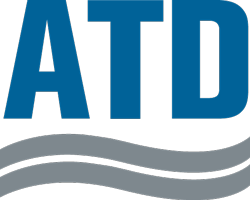
Legislative Affairs
Learn how ATD Legislative Affairs protects and promotes franchised auto and truck dealerships’ interests before Congress.
EPA'S DE FACTO ZEV TRUCK MANDATE WILL LEAD TO SIGNIFICANT NEGATIVE IMPACTS ON HEAVY-DUTY TRUCK DEALERS, TRUCK BUYERS, AND THE ECONOMY
In April, the Environmental Protection Agency (EPA) issued a final rule, “Greenhouse Gas Emissions Standards for Heavy-Duty Vehicles – Phase 3,” targeting fleet-wide greenhouse gas (GHG) reductions for model year 2027 through 2032 heavy-duty vehicles. The rule will force the broad adoption of heavy-duty zero-emission vehicles (ZEVs), despite currently being less than 0.3% of sales last year. An electric truck has upfront costs two to three times more expensive than a comparable diesel vehicle, and the U.S. lacks a national commercial vehicle charging network, which makes customer adoption of heavy-duty ZEVs and their day-to-day use impractical. A study released by the Clean Freight Coalition found that full electrification of the U.S. commercial truck fleet would require nearly $1 trillion of infrastructure investment and grid network upgrades to meet demand. On July 24, the House passed the FY25 Interior, Environment appropriations bill (H.R. 8998), which includes language that would stop the EPA’s de facto ZEV mandate on heavy-duty vehicles for the fiscal year. Members of Congress should vote for joint resolutions which would disapprove EPA’s de facto ZEV heavy-duty truck mandate (H.J.Res. 133/S.J.Res. 74).
PROMOTE THE TRANSITION TO A CLEANER, GREENER AND SAFER TRUCK FLEET – REPEAL THE 12% FEDERAL EXCISE TAX ON HEAVY-DUTY TRUCKS (H.R. 1440/S. 694)
Congress should repeal the outdated 12% federal excise tax (FET) imposed on new heavy-duty trucks to accelerate turnover of America’s aging truck fleet, which will lead to cleaner, safer trucks on the road. First enacted in 1917 to help pay for World War I, this tax routinely adds $22,000 or more to the price of a new heavy-duty diesel truck, or $50,000 to the price of an electric or hydrogen fuel-cell truck, which cost more than twice the price of a new clean diesel truck. The FET is levied in addition to the nearly $40,000 per truck cost due to recent federal emissions and fuel-economy mandates. While new trucks have made significant environmental gains, such as reducing nitrogen oxide and particulate matter emissions by at least 98%, the FET remains a costly barrier to the purchase of new trucks equipped with the latest environmental technologies. With 47% of the Class 8 trucks on the road today over 10 years old, FET repeal would immediately benefit the environment by incentivizing the replacement of older trucks with cleaner, safer and more fuel-efficient trucks. ATD and eight trucking organizations sent a letter to Senate Finance Committee and House Ways and Means Committee leadership last year urging passage of bipartisan FET repeal legislation, the “Modern, Clean, and Safe Trucks Act of 2023” (H.R. 1440/S. 694). Members of Congress are urged to incentivize the replacement of older trucks with newer, greener, and safer trucks and cosponsor H.R. 1440/S. 694.
VEHICLE “REPAIR ACT” BILL IS OVERBROAD AND WOULD REGULATE HEAVY-DUTY TRUCKS, DESPITE NO APPLICATION TO THE CONSUMER MARKET– OPPOSE H.R. 906
Advocates for “right to repair” legislation claim that independent vehicle repair shops do not have access to the parts or data necessary to repair vehicles. However, this concern was rectified years ago, and the information independent shops need to repair vehicles is available from every truck manufacturer. Unlike previous “right to repair” bills, H.R. 906 has little to do with repairing a vehicle. Instead, the bill would compel truck manufacturers to provide any “aftermarket parts manufacturer” the information necessary “to produce or offer compatible aftermarket parts,” i.e., parts not made by the truck manufacturer. This legislation would also give any third party unfettered access to data from vehicles, which raises privacy, vehicle security, and safety concerns. The bill is also overbroad as it regulates heavy-duty vehicles the same as light-duty vehicles. Last year, the ATD Board of Line Representatives sent a letter to House Energy and Commerce Committee leaders opposing this legislation. Members of Congress are urged not to cosponsor or vote for H.R. 906.
SUPPORT CATALYTIC CONVERTER ANTI-THEFT LEGISLATION (H.R. 621/S. 154)
Catalytic converters are being stolen at increasingly higher rates due to their valuable metals, such as rhodium, platinum and palladium. Gas-powered medium-duty trucks are often targeted by thieves, as many of these vehicles have catalytic converters that can be easily accessed. Catalytic converters are easy to steal, but generally very difficult to trace to a specific vehicle, allowing them to be sold on the black market. These thefts are costing businesses and vehicle owners millions of dollars. The bipartisan “Preventing Auto Recycling Theft Act” (PART Act) (H.R. 621/S. 154) would help law enforcement combat this crime by providing a national framework that would mark catalytic converters, establish federal criminal penalties, and create a more transparent market that deters their theft. ATD and 119 other organizations sent a letter in August to congressional leaders urging passage of the PART Act. Congress should pass the PART Act to help law enforcement combat the theft of emission devices and add emission control systems for heavy-duty trucks to the bill, which would create a more transparent market to deter their theft.
ATD Legislative Issue Briefs
Grassroots
When lawmakers learn about your business and employees, they become better informed about how their decisions affect your ability to serve customers and grow your business.
Find Your Members of Congress
About Legislative Affairs
Learn how NADA Legislative Affairs protects and promotes franchised auto and truck dealerships' interests before Congress. Find the latest legislation affecting the automotive retail industry, including issues such as auto finance, tax policy, vehicle commerce, fuel economy and the environment, as well as grassroots.



